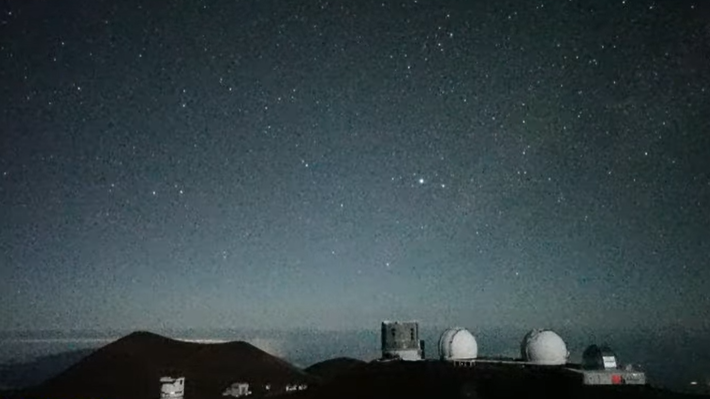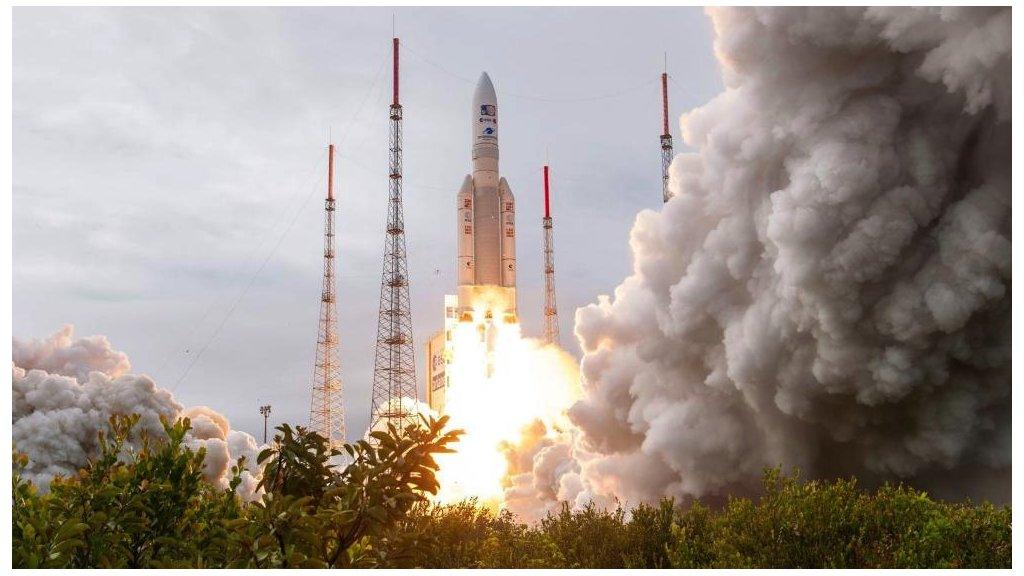Scientists photograph Jupiter for Nasa 'remotely'

The W.M. Keck Observatory based in Hawaii has the largest infrared telescope in the world
- Published
Scientists at the University of Reading are playing a vital role in helping Nasa photograph Jupiter.
The academics have been using the Keck telescope to photograph the planet remotely.
In the past they have had to travel to special facilities or Hawaii to record their pictures but now they can control a telescope remotely and download the images of Jupiter within seconds.
Research Associate Professor in Planetary Astronomy at the university, Dr James O'Donoghue said: "It's really exciting that we can do this cutting-edge space research right from Reading."

Dr James O'Donoghue said: "It's really exciting"
He explained that the telescope observations enable them "to take Jupiter's temperature and watch how its brightness changes".
He said this was particularly special around "the poles where spectacular light shows called auroras happen".
He said: "These auroras are incredibly powerful, driven by hundreds of trillions of watts of energy.
"Monitoring these auroras helps us understand how energy flows through Jupiter's atmosphere and how the planet interacts with its surrounding space environment."
Images from the telescope show Jupiter in infrared and reveal bright auroras at the planet's poles.
The photographs also show a black circle in front of Jupiter, which is a moon called Callisto. It is so bright that the pixels appear black.
Get in touch
Do you have a story BBC Berkshire should cover?
You can follow BBC Berkshire on Facebook, external, X (Twitter), external, or Instagram, external.
More like this
- Published14 April 2023
- Published14 April 2023
